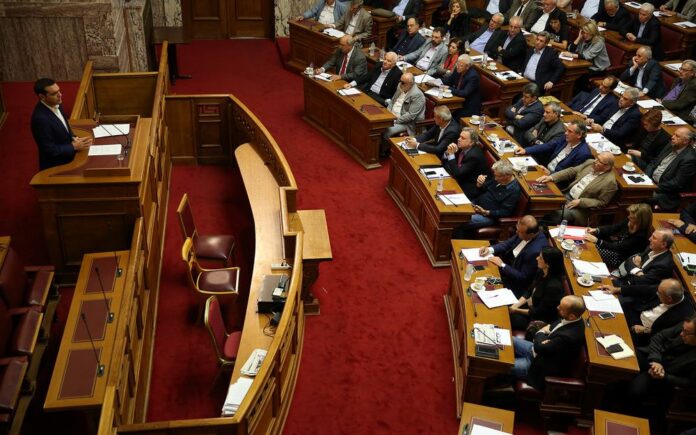Top ministers of the poll-trailing Tsipras coalition government this week continued to rally around the prospect of avoiding another round of painful pension sector cuts come Jan. 1, 2018, even as the austerity measure has been voted into law and one of a handful of very prominent reforms institutional creditors expect Athens to implement in the post-bailout period.
The government spokesman, Dimitris Tzanakopoulos, was the latest Cabinet member to call the upcoming austerity measure “unnecessary”, speaking to the state-run broadcaster on Thursday only days after the third (and last) memorandum officially expired for the country.
His comments came after similar statements by the relevant labor and social insurances minister, and her predecessor, under whose “watch” the austerity measure was negotiated with European creditors, eventually accepted, contained in a draft bill and ratified by MPs supporting the leftist-rightist coalition government.
“Whatever measure was set to be taken, has been taken. The goal of a primary budget surplus of 3.5 percent (of annual GDP) has been achieved, and therefore, objectively, there is no need for the measure,” Tzanakopoulos opined.
Roughly 30 percent of all pensioners in Greece will see reductions in monthly social security payments under the measure, as of Jan. 1, 2019. Some 50 percent of beneficiaries will see no change in the amount they receive, while some 20 percent may see even a small increase.
With the “strange bedfellows” coalition trailing center-right New Democracy (ND) party by double-digit percentage points in practically all mainstream opinion polls for a year and a half now, the political “hot potato” entailed in social security cuts is anathema to the Tsipras government. Unless a snap election is declared, regular general elections must be held in the autumn of 2019.
In citing what he called the “common feeling in Greece and abroad”, Minister of State Christoforos Vernardakis said the austerity measure should not be implemented “because there is sufficient fiscal space … it is unnecessary and not fiscal structuring”.
Conversely, and in opposition to the chorus of increasingly nervous ministers expressing arguments to avoid the high-profile commitment to creditors, Finance Minister Euclid Tsakalotos expressed skepticism over the prospect of not implementing the cuts, saying international markets may consider the development as a sign that previously agreed to reforms are now being overturned. He made the comment in a radio program.
Top European and Eurozone officials have repeatedly dismissed any prospect of a postponement or suspension of the measure, with only EU Commissioner Pierre Moscovici – the warmest supporter of the Tsipras government at the European level – leaving open only a remote possibility of a suspension.














